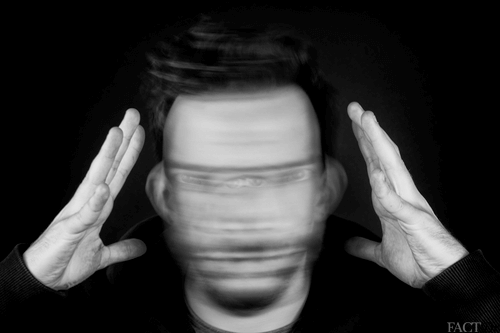Groats disease is a psychiatric disease characterized by the delusional belief that one is dead, in a state of decomposition, or does not exist.

This pathology was discovered in the nineteenth century, by the French neurologist Jules groat, as the name suggests, who treated a woman who manifested a strange symptom, in fact, claimed to be already dead. Mademoiselle X, the name that groats gave to the patient, in addition to claiming to be dead, also denied the existence of God and the devil, of parts of her body to the point of convincing herself that she was damned for eternity to remain trapped in the body her.
Since it is a very rare psychopathological syndrome it is also poorly documented, the cases described in the literature are generally connected to serious cases of mood disorders or depressive syndrome linked to episodes of depersonalization, decreolization, and/or psychotic disorders, not attributable to pre-existing medical conditions.
Groats disease Symptoms
Groat’s disease, also known as “delirium of denial” or “dead man syndrome”, is a very rare form of psychotic hallucination, like psychosis or schizophrenia, two very disabling mental illnesses.
Its symptoms are very specific and particular: in essence, the patient who is affected thinks he has passed away, absolutely denying his own existence.

Often a patient suffering from this pathology thinks he is already in hell or in heaven, he claims to have no vital organ, to be bled, or in an advanced state of decomposition. He also manifests a serious inability to relate to others as he is unable to feel feelings or emotions for those who are dearest to him.
Although the disease is not mentioned as a psychiatric disease by the DSM V (Diagnostic and Statistical Manual of Mental Illnesses), sufferers have some symptoms typical of specific psychiatric pathologies, such as depressive states, anxiety, and suicidal instincts.
Causes of Groats Disease
The underlying causes of groats disease are mainly of two types: neurological and psychological in nature.
The distortion of reality typical of mental disorders of this type would seem to be caused by a lesion or malfunction of two areas of the brain: the fusiform gyrus, which deals with the recognition of familiar faces, and the amygdala which instead deals with processing our emotions. In most cases, people experience these injuries as a result of trauma, such as an accident, illness, or collapse.

This malfunction would therefore lead to a pathological interruption of the nerve fibers that connect the center of emotions to the sensory areas, which results in the recognition by the subject affected by groats disease of the physical characteristics of a face without activating the response. emotional to that stimulus. According to the researchers, patients suffering from this syndrome have experienced the same “interruption” between recognition of faces and emotions that is found in patients diagnosed with Capgras syndrome (a psychiatric disease characterized by the belief that one or more family members have been replaced by a double, by strangers or aliens).
As the only plausible explanation of his condition, the patient with groats syndrome can therefore only assume that he is already dead.
Recent studies have highlighted the correlation between groats disease and mood disorders, in particular, it would seem that in many cases this disease occurs as a consequence of a severe form of reactive depression, or a group of researchers has correlated the typical symptoms of this disease with the assumption of some specific drugs for the treatment of herpes simplex, but these are still preliminary studies which need to be followed up further before these theories can be validated.
Cure for Groats disease
As for the treatments, usually in the first analysis antidepressant and antipsychotic drugs are prescribed together with courses (of varying duration) of psychotherapy.
In some severe cases, the use of electroconvulsive therapy is also suggested, in order to re-establish the connection between the nerve fibers responsible for the emotional response to family stimuli.
Finally, it is good to clarify the need to intervene promptly at the first appearance of symptoms. If you suspect that a loved one or acquaintance may be suffering from groats disease, it is good to make immediate contact with a psychologist or psychiatrist so that the psychologist or psychiatrist can make an early diagnosis and promptly draw up a treatment plan.
This is because groats is a very severe psychiatric pathology, which leads to the total denial of one’s sense of identity and also one of the mental illnesses with the highest suicide rate.
Precisely for all these reasons, it is good to contact a specialist as soon as possible who can plan an adequate treatment and also evaluate the progress of the treatment, in order to prevent any adverse events.
Treatment
Usually, groats disease is treated with antidepressant and antipsychotic medicines, combined with psychotherapy sessions. In this process, there is generally a tendency to involve family members, as the patient may not recognize his or her state in full autonomy, as well as not realize which factors are responsible for the development and maintenance of the disorder.
The patient with groats disease must also be regularly evaluated by the specialist doctor, to highlight any improvements or worsening of the clinical condition.
In some severe cases, the use of electroconvulsive therapy may be suggested, in order to re-establish the connection between the nerve fibers responsible for the emotional response to sensory stimuli.
Medicines
Medicines that are usually prescribed to treat groats disease can include:
- Antipsychotics (also called neuroleptics): drugs useful for the treatment of psychotic symptoms, such as delusions and hallucinations;
- Mood stabilizers;
- Antidepressants: Help manage feelings of sadness and hopelessness.
In general, long-term treatment is required for proper management of groats, and the prognosis varies from person to person.
Psychotherapy
In the presence of groats disease, psychotherapeutic interventions are an important complement to pharmacological treatment, as they help to improve the prognosis of the disorder, taking into account the complexity of the pathology and the specific individuality of the subject.
This path is aimed, in particular, at:
- Promote an adequate reality examination;
- Restore the main functions of the person;
- To favor the overcoming of the symptomatic episode, in a constructive way to reach a new equilibrium, no longer pathogenic.
Reference:
| Name | Website URL |
| Wikipedia | CLICK HERE TO VISIT |








